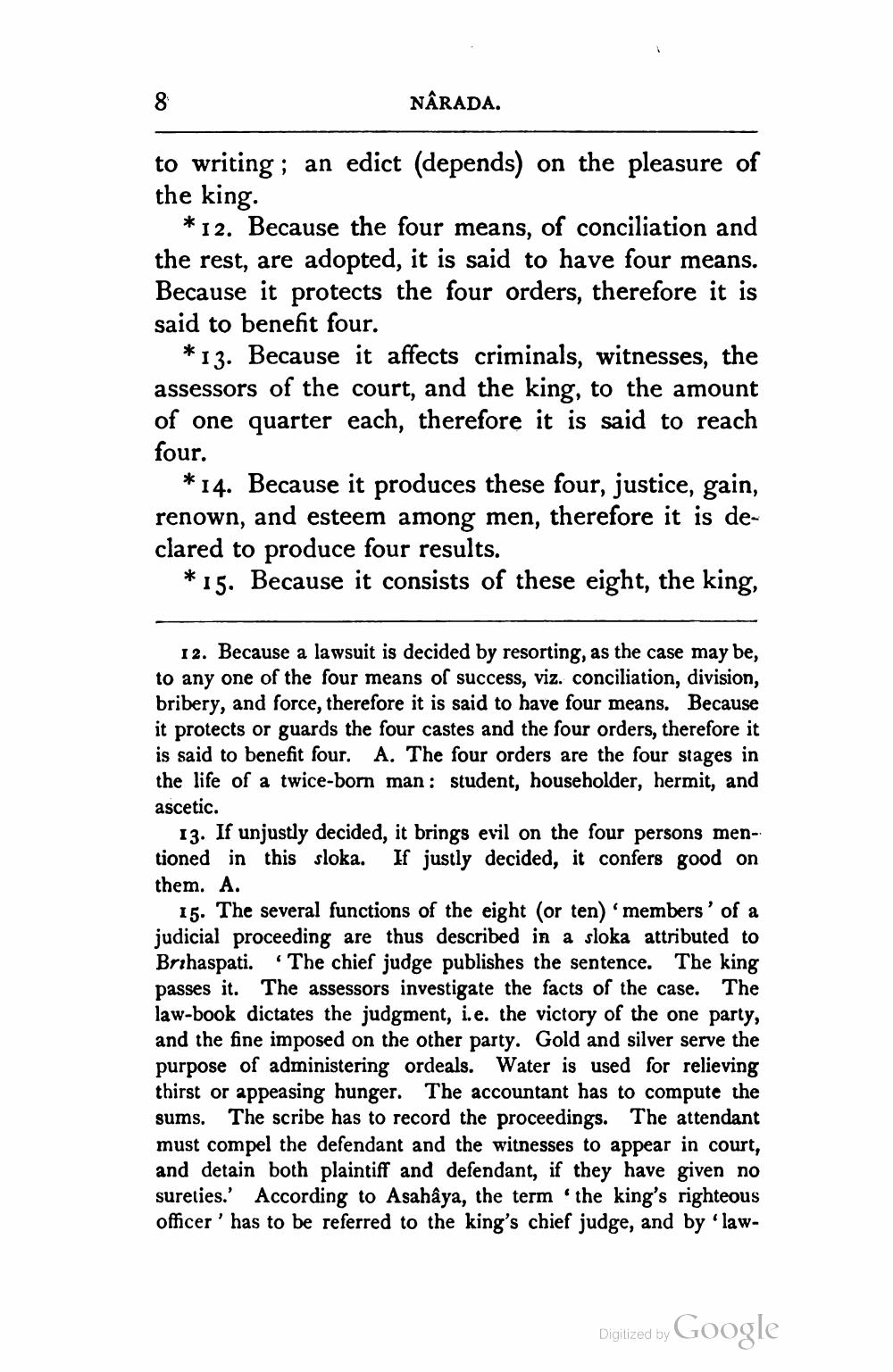________________
NÂRADA.
to writing ; an edict (depends) on the pleasure of the king.
*12. Because the four means, of conciliation and the rest, are adopted, it is said to have four means. Because it protects the four orders, therefore it is said to benefit four.
*13. Because it affects criminals, witnesses, the assessors of the court, and the king, to the amount of one quarter each, therefore it is said to reach four.
*14. Because it produces these four, justice, gain, renown, and esteem among men, therefore it is declared to produce four results.
*15. Because it consists of these eight, the king,
ceuc.
12. Because a lawsuit is decided by resorting, as the case may be, to any one of the four means of success, viz. conciliation, division, bribery, and force, therefore it is said to have four means. Because it protects or guards the four castes and the four orders, therefore it is said to benefit four. A. The four orders are the four stages in the life of a twice-born man: student, householder, hermit, and ascetic.
13. If unjustly decided, it brings evil on the four persons mentioned in this sloka. If justly decided, it confers good on them. A.
15. The several functions of the eight (or ten) members' of a judicial proceeding are thus described in a sloka attributed to Brihaspati. The chief judge publishes the sentence. The king passes it. The assessors investigate the facts of the case. The law-book dictates the judgment, i.e. the victory of the one party, and the fine imposed on the other party. Gold and silver serve the purpose of administering ordeals. Water is used for relieving thirst or appeasing hunger. The accountant has to compute the sums. The scribe has to record the proceedings. The attendant must compel the defendant and the witnesses to appear in court, and detain both plaintiff and defendant, if they have given no sureties. According to Asahaya, the term the king's righteous officer' has to be referred to the king's chief judge, and by law
Digitized by Google




